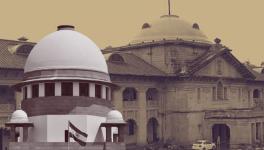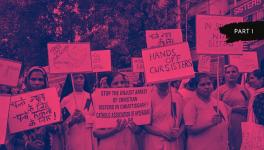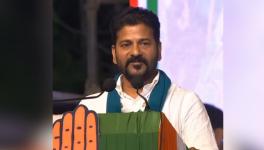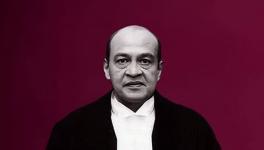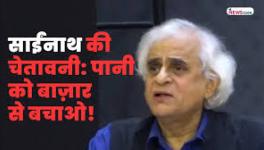Waqf Hearing: Recap of Govt’s Counter-Affidavit, Petitioners’ Rejoinders
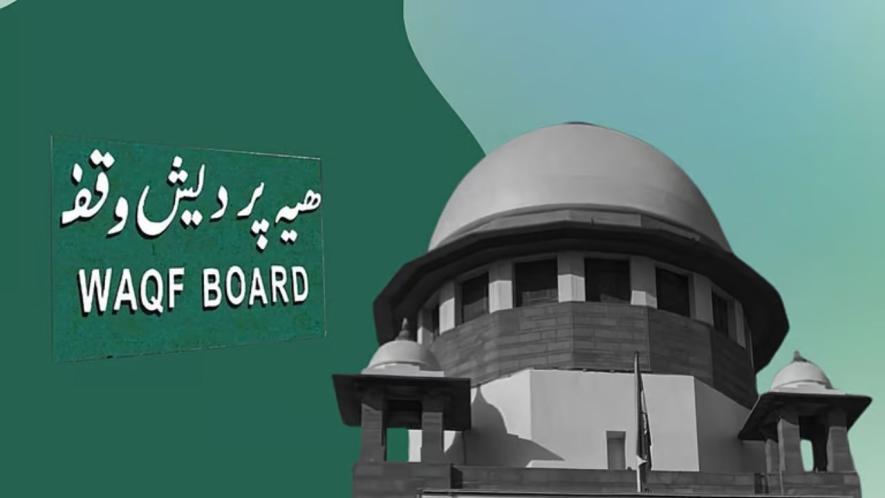
Today, a division bench led by the Chief Justice of India Sanjiv Khanna and comprising Justices P.V. Sanjay Kumar and K.V. Viswanathan will continue hearing the arguments on challenges to the Waqf Amendment Act, 2025.
The Court had clarified on April 17 that the upcoming hearing will only be preliminary to assess whether the matter should be heard by it or referred to one of the High Courts. The Court will, thus, issue relevant directions or pass an interim order if required. Any substantive arguments will not yet be heard.
The hearing was fixed at the instance of Solicitor General Tushar Mehta, as he sought time to file an affidavit on behalf of the Union government and place on record some relevant documents. The petitioners were also told to file their rejoinders before today’s hearing.
The Centre has filed a 1332-page preliminary counter-affidavit supporting the Amendment Act. The affidavit, sworn by Shersha C. Shaik Mohiddin, Joint Secretary, Ministry of Minority Affairs, seeks to dismiss the petitions challenging the Act and opposes any interim stay on its provisions.
The Centre has filed a 1332-page preliminary counter-affidavit supporting the Amendment Act. The affidavit, sworn by Shersha C. Shaik Mohiddin, Joint Secretary, Ministry of Minority Affairs, seeks to dismiss the petitions challenging the Act and opposes any interim stay on its provisions. It asserts that the Act is a legitimate and necessary legislative step towards enhancing transparency, regulating the management of the auqaf and curbing their misuse.
The affidavit provides a historical context, noting that the legislation has evolved through multiple enactments, and claims that the Act builds on this legacy to address contemporary challenges such as the exponential growth of the waqf properties and encroachments. It includes annexures of historical developments of waqf legislation to support the argument that the Act is a continuation of regulatory efforts, not a radical departure.
The Centre argues that the Act does not violate fundamental rights, including the right to religious freedom guaranteed under Articles 25 and 26 of the Constitution of India. Instead, it is designed to benefit the Muslim community by improving governance and accountability. It emphasises that the Act is focused on “secular” administrative reforms rather than interfering with the practices of any religion.
Constitutional validity and presumption of legality
The Union government points out that parliamentary enactments carry the presumption of constitutionality, and this presumption becomes a fortiori when the law has been made on the recommendations of a Joint Parliamentary Committee after an exhaustive exercise and extensive debate in the Parliament. It argues that the constitutional courts should not stay statutory provisions, either directly or indirectly, unless they decide the matter finally. The report of the JPC and the recommendations made to it by various parties, groups and individuals are also annexed with the affidavit.
It further contends that the Act is a valid exercise of legislative power under the Concurrent List of the Constitution, which allows both the Central and State legislatures to regulate charitable and religious institutions, including waqf. Therefore, the Court must dismiss the petitions challenging the Act since they lack merit and fail to demonstrate any specific instance of injustice.
The government argues that the Act had become a necessity given the “reported” misuse of waqf provisions to encroach upon private and government properties, which it says is evident from the 116 percent increase in the Waqf properties since the 2013 amendment. The government has annexed the figures uploaded by the respective Waqf Boards “voluntarily” on the WAMSI Portal, to support this contention. These figures show the auqaf rising from 18,29,163.896 acres before the 2013 amendment to an addition of 20,92,072.536 acres in waqf lands post the amendment. As per the government, this “shocking” increase can only be attributed to misuse of provisions like the waqf-by-user (Clause 4(ix)(b)) and the Waqf Boards’ unilateral authority to declare properties as waqf.
Secular regulation
As per the affidavit, the system of waqf, under the Act, operates in three tiers. The first is the Central Waqf Council, which is merely an advisory body to the Central government and does not deal with any activity of waqf per se; the second is the State Waqf Boards, which exercise regulatory powers concerned with secular activities of waqf and provide for an effective and statutory regime for administrating waqf properties in accordance with the law; and the third is the individual waqfs either for religious or charitable purposes, governed solely by internal management provided by each waqf whether by way of waqf deed “or otherwise”.
The government claims that the Act only seeks to regulate the secular and administrative facets of waqf management, leaving matters of religion, faith and worship untouched. It argues that the concept of waqf is distinguishable from mere religious denominations or places of worship, and the waqf properties often serve non-religious purposes such as orphanages, hospitals, educational institutions, and scholarships, justifying legislative oversight.
The government cites secular administrative functions to also defend the mandatory inclusion of non-Muslim members in the Central Waqf Council (under Section 9) and the State Waqf Boards (under Section 14) under the Amendment Act, which it claims will be up to four out of twenty-two members and three out of eleven members, respectively. It argues that this is a measure of inclusivity and not intrusion.
The government has defended its move to take away the concept of waqf-by-user, arguing that the provision allowed for the Waqf Boards to unilaterally claim land without evidence, thereby creating a “safe haven” for encroachments on private and government properties.
The affidavit distinguishes these waqf bodies from Hindu and Sikh endowment Trusts, noting that the auqaf interact with broader societal interests, therefore requiring diverse representation. It asserts that the community’s control will not be diluted as Muslims will still be in the majority in the waqf bodies.
The affidavit also defends the provision mandating a person to be a practicing Muslim for at least five years before he can create a waqf. It argues that this provision ensures the waqf aligns with Islamic principles without violating religious freedom. However, it does not specify the procedure that will be adopted for enforcing such a mandate.
Waqf-by-user and registration requirements
The government has defended its move to take away the concept of waqf-by-user, arguing that the provision allowed for the Waqf Boards to unilaterally claim land without evidence, thereby creating a “safe haven” for encroachments on private and government properties.
The affidavit states that only those waqf-by-user properties that were registered as of April 8, 2025, are protected under Section 3(1)(r) of the Act. It argues that since the registration has been mandatory since the Mussalman Wakf Act, 1923, non-registered auqaf cannot claim legal protection due to deliberate evasion, which was punitive even under the prior laws.
It further states that the Act does not require documentary proof of waqf-by-user and clarifies that registration, and not deeds, is the sole requirement. It argues that as of 2025, oral creation of waqf is outdated, as written documentation is standard for other property transactions, such as sale deeds, and wills.
Transparency and government oversight
The government justifies the provisions of the Act that empower the district collectors (gazetted officers) (Section 3C) to determine the ownership of disputed auqaf, particularly the ones claimed by the government. It argues that “repeated and documented” instances of Waqf Boards claiming government land, public utilities, and protected monuments without evidence, relying solely on their own records, justify these provisions.
It claims that the contention that this provision allows the government to become a judge in its own cause, that would invariably act in a biased or prejudicial manner, amounts to stretching the bias rule “unacceptably far”.
The affidavit argues that this provision corrects revenue records and ensures fairness. It emphasises that the land owned by the government cannot belong to any religious community.
Furthermore, the government claims that the introduction of centralised registration, auditing, and a streamlined tribunal structure with appeals to the High Courts is aimed at enhancing transparency and accountability. It defends the omission of the overriding effect provided under Section 108A of the 1995 Act, as a step towards harmonising the Waqf Act with other laws, reducing legal conflicts.
The government further states that the Amendment Act does not deprive Muslims of their right to create a waqf – it merely requires proper documentation and registration to reduce disputes, aligning the provisions governing waqf with modern legal standards. The Act, therefore, does not interfere with essential religious practices of Muslims. Rather it provides for regulating the administration of the auqaf to prevent misuse.
Accusations on the petitioners
The affidavit accuses petitioners of building a “deliberate, purposeful, and intentionally misleading narrative” around the Act that it would harm the properties lacking documentation. It states that the Act will only affect the non-registered auqaf, which cannot be defended since registration has been a century-long statutory requirement. It points out that the position of law has been clear right from the year 1923, as the existence of the waqf can be established without a waqf deed while getting it registered.
It argues that the claim that the amended Act calls upon the old waqfs to declare a waqf deed is a “deliberately fostered misconception and a mischievous false narration”. It categorically submits that the amended law will not require old documents that can never be available.
The affidavit strongly opposes any interim stay on the act, arguing that it would cause “public mischief” and harm Muslims who support the amendments.
The affidavit argues that the petitioners are seeking to “ventilate” only one segment of religious rights by interpreting Articles 25 and 26 in a “silo”. It claims that there are three overlapping and conflicting segments of fundamental rights at play, namely, the rights claimed by the Muslims challenging the Amendment Act, the rights of other “individual persons/groups of the Muslim faith” that support the Amendment Act, and the rights of the members of other communities guaranteed under Article 14, 21 and 300-A, which are “often affected” by the creation, administration and management of Waqf properties.
The affidavit claims that the reforms are directed at the secular and administrative aspects, which “may at best be connected with religious beliefs and not beliefs themselves”. And it does not impinge upon any essential religious practice or tenets of the Islamic faith.
It counters the claim that the Act discriminates against Muslims and asserts that it benefits the community, particularly poor and Pasmanda Muslims, by mainstreaming work governance and protecting stakeholders’ rights.
It further contends that the Act promotes gender equality by mandating the inclusion of at least two Muslim women on the Central Waqf Council and State Waqf Boards and ensures the rights of inheritance to females, and also promotes sectarian inclusivity by requiring representation from various Muslim sects.
Why no interim stay
The affidavit strongly opposes any interim stay on the act, arguing that it would cause “public mischief” and harm Muslims who support the amendments. It contends that staying provisions would effectively create a judicial legislative regime, undermine parliamentary authority, and defeat the object, intent and purpose of the Act in general and the 2025 amendments in particular.
It states that if the effect of the section saving only registered waqf-by-user is interfered with either directly or indirectly by any interim order, it will create anomalies and give a premium to unregistered waqf-by-user who have been “defying the law of the land for more than 100 years”. It would legitimise unregistered waqf-by-user, which is precluded and penalised by law.
It further claims that a stay, interim or otherwise, would make it impossible for a court or any other authority to prevent anyone fictitiously claiming waqf-by-user in 2025 even if the same has never been identified in the statutory process of survey commissioner, the process of the Waqf Boards of each state, has never chosen to apply for registration and has never been reflected in any record including revenue records.
To support this argument, the affidavit cites the 1976 report of the Waqf Inquiry Committee, which noted that some waqfs are deliberately trying to avoid registration, concealing waqf affecting the administration of waqfs.
The rejoinders
The petitioners challenging the validity of the Act have filed their rejoinders to the counter-affidavit of the Union Government. They primarily counter the claims made by the Government and argue that the Act violates fundamental rights, undermines Muslim religious autonomy and introduces discriminatory provisions.
The rejoinders collectively challenge the government’s assertions made in its counter-affidavit, which defends the Act as a transparent and inclusive reform to regulate waqf management. Petitioners argue that the Act's provisions, such as the removal of waqfs-by-user, inclusion of non-Muslims in waqf bodies, and enhanced government oversight, infringe on Articles 14 (equality), 15 (non-discrimination), 25 (freedom of religion), 26 (religious autonomy), 29 (rights of the minority communities), and 300-A (property rights) of the Constitution.
They dispute the data provided by the government, particularly the claim of the 116 percent increase in the waqf properties since the 2013 amendment. The petitioners assert that the Act threatens historical properties, especially those without formal documentation. The rejoinders also highlight procedural unfairness, arbitrary restrictions, and the Act’s potential to disrupt the religious and charitable essence of waqf.
Rejoinder by Arshad Madani (Jamiat Ulama-i-Hind)
Maulana Madani, represented by Senior Advocate Kapil Sibal, argues that the Act violates Article 26 by interfering with the Muslim community’s right to manage its religious and charitable institutions. He further argues that the requirement of being a practising Muslim for at least five years for creating a waqf under Section 3(r) is arbitrary and infringes on religious autonomy, as it imposes a state-defined criterion on a religious act.
He also argues that the removal of waqf-by-user is unconstitutional as it undermines a doctrine recognised by the Supreme Court in the Ram Janmabhoomi-Babri Masjid judgement (2019). He states that many waqfs, especially historical mosques and graveyards, lack formal deeds due to their centuries-old origins. Requiring a waqf deed for validating such a waqf (Section 36) threatens their existence and contradicts Islamic law, which recognises oral dedications.
He further argues that the empowering of Collectors to declare waqf properties as government land is “per se unconstitutional” as it allows government officers to act as “judges in their own cause” without a fair adjudication process or time limit. Therefore, this provision impedes due process and violates the property rights under Article 300-A.
Maulana Madani also argues against the inclusion of non-Muslims in the waqf bodies reduces Muslim representation and interferes with the right of the Muslim community to govern its religious institutions, drawing parallels with the Hindu or Sikh endowments, which remain community-specific.
Maulana Madani also argues against the inclusion of non-Muslims in the waqf bodies reduces Muslim representation and interferes with the right of the Muslim community to govern its religious institutions, drawing parallels with the Hindu or Sikh endowments, which remain community-specific.
Furthermore, he contends that the introduction of a two-year limitation period for waqf claims (Section 61) is discriminatory and impractical for properties dedicated centuries ago, as it bars rightful claims, especially for unregistered waqfs, as many lack prior registration due to historical practices.
He has also argued that Section 3D, which declares waqf over ASI-protected monuments void, is arbitrary and threatens historical waqf properties such as the Jama Masjid in Delhi and the Shahi Jama Masjid in Sambhal, which are integral to Muslim religious practice.
Rejoinder by Asaduddin Owaisi (Member of Lok Sabha)
Owaisi has called the Amendment Act unconstitutional and discriminatory. He argues that the Act imposes such restrictions on Muslims that do not apply to other religious endowments, therefore, it is violative of Article 14. He states that the Act’s provisions dismantle the democratic structure of waqf bodies by eliminating the elections, thus undermining the Muslim community’s right to self-govern.
He also argues against the deletion of the waqf-by-user and states that such omission endangers 8.7 lakh properties in India, which rely on long-standing use without documentation. Owaisi emphasizes that the Act’s broader intent to require deeds is discriminatory.
He argues that the inclusion of non-Muslims in waqf bodies dilutes the Muslim community’s control over its religious institutions, thereby infringing Article 26. He has called such state intervention unwarranted and unlike the exclusive community management enjoyed by Hindu trusts.
He contends that the Act places waqf lands at the mercy of executive authorities, particularly through Section 3C, which allows Collectors to resolve disputes without judicial oversight. He argues that this provision risks arbitrary denotification of auqaf, violating property rights.
Owaisi also disputes the government’s claim of 116% increase in waqf properties, arguing that the data misrepresents the registration process on the WAMSI portal. He asserts that the narrative of rampant encroachments, spun by the Union Government, is exaggerated to justify the Act’s restrictive measures.
Rejoinder by All India Muslim Personal Law Board
The AIMPLB has called the amendments arbitrary and discriminatory. The Board argues that the Act is based on exclusion and violates Articles 14 and 15 as it singles out Muslims by imposing restrictions on the governance of waqf, which is not applied to other religious endowments.
They also argue against the deletion of waqf-by-user and state that requiring the mutawalli to present a deed for historical waqfs threatens mosques, which constitute 17 percent and graveyards that constitute 14 percent of the total waqf properties. These properties, as per their argument, would lack documentation, and the provision requiring the same to be presented is in contradiction to Islamic laws, which recognise oral waqf deeds.
The AIMPLB has also raised contentions against the inclusion of non-Muslims in the waqf bodies, declaring it an “unconstitutional assault” on Article 26, and against the executive overreach provided under Section 3C, calling it a risk without safeguards, which impinges on the rights of the Muslim community.
The Board has further highlighted the discrepancy in the data presented by the Union government. They have demanded action against the author of the affidavit for inflating the encroachment figures and have refuted the claim of 116% increase in auqaf as “incorrect”. They argue that the Act may facilitate the retrospective extinguishing of the centuries-old status of auqaf, violating Article 300-A and the established principle of “once a waqf, always a waqf”. They also argue that by restricting waqf management, the Act undermines the cultural and religious rights of Muslims guaranteed under Article 29.
Other petitioners, including the RJD Members of Parliament - Manoj Kumar Jha and Faiyaz Ahmad, social activist Muhammad Jameel Merchant, Indian Union Muslim League, Samastha Kerala Jamiathul Ulema, AAP MLA - Amanatullah Khan, the Association for Protection of Civil Rights (APCR), Congress Member of Parliament – Mohammad Jawed, the DMK, and other petitioners have all raised similar arguments.
Some petitioners have also argued that the ninety-day public notice encourages frivolous litigation and enables the harassment of the mutawallis and beneficiaries of the auqaf.
Some petitioners have also argued that the ninety-day public notice encourages frivolous litigation and enables the harassment of the mutawallis and beneficiaries of the auqaf.
Congress Member of Parliament, Advocate Hamdullah Sayeed, has raised the contention that the Act fails to acknowledge the existence of Muslim members of the Scheduled Tribes, such as himself. He argues that Section 3E of the Act, which prevents Muslim members of Scheduled Tribes from declaring their land as Waqf, abridges the fundamental rights of such Muslim individuals and communities, guaranteed under Articles 14, 15, 25, 26, 29 and 300-A of the Constitution.
The hearing today
The Supreme Court has refused to entertain fresh pleas challenging the Act. The stage is set for both sides to present their case. Today’s hearing will be critical in evaluating these claims and counterclaims. What is certain is that the Supreme Court will carefully scrutinise the claims made by the government, and the arguments against them, particularly regarding the scale of alleged encroachments in the name of waqf and the Act’s impact on fundamental rights.
Courtesy: The Leaflet
Get the latest reports & analysis with people's perspective on Protests, movements & deep analytical videos, discussions of the current affairs in your Telegram app. Subscribe to NewsClick's Telegram channel & get Real-Time updates on stories, as they get published on our website.









